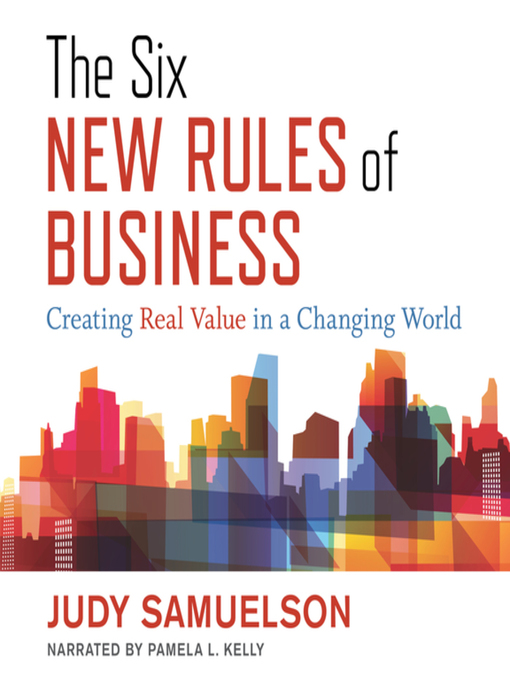The Six New Rules of Business
Creating Real Value in a Changing World
Decades of teaching and reinforcing shareholder return as the single objective function of a well-run business has resulted in corporations focused entirely on quarterly profits and rewarding short-term-oriented investors. This has been at the expense of employees, long-term vision, and stewardship of natural resources. But we are now starting to see social forces and public expectations giving shape to a new kind of business ethic, as reflected in the Business Roundtable's 2019 Statement on the Purpose of a Corporation.
Judy Samuelson, vice president at the Aspen Institute, lays out six new rules that can help a business free itself from the tyranny of shareholder primacy and become an active force for solving the world's problems:
1. Reputation, trust, loyalty, and other intangibles drive real business value
2. Businesses serve many objectives beyond shareholder value
3. Corporate responsibilities extend far outside the business gates
4. Employees are allies, not expenses
5. Culture is king and talent rules
6. Co-create with your competitors to win
These new rules create real value and have the staying power to reverse decades of value-destroying decisions in business.
-
Creators
-
Publisher
-
Release date
January 12, 2021 -
Formats
-
OverDrive Listen audiobook
- ISBN: 9781663740892
- File size: 181553 KB
- Duration: 06:18:14
-
-
Languages
- English
-
Reviews
-
Publisher's Weekly
November 2, 2020
If businesses want to thrive, they need to “value the real contributors—including workers and nature,” according to this earnest guide. Samuelson, founder of the Aspen Institute’s Business and Society Program, argues that the business world is changing at a “dizzying” pace, and aims, with her six rules for ethical business, to point organizations toward “a sustainable future.” Each rule gets its own chapter and is presented alongside the outdated thinking it’s designed to replace. For instance, the first rule, “Reputation, trust, and other intangibles drive business value,” supplants the belief that “hard assets determine firm value,” while another rule, “employees give voice to risk and competitive advantage,” takes over for the outdated idea that “labor is a cost to be minimized.” Samuelson’s appeals for corporate responsibility (global business “is the most influential institution of our age, akin to the Church in the Middle Ages”) are backed by examples of companies that have heeded the call for social and ecological responsibility and either thrived (Southwest Airlines) or floundered (Boeing). Though Samuelson’s call to action feels familiar, her voice is encouraging and optimistic. Business leaders struggling to keep up would do well to give this a look.
-
Loading
Why is availability limited?
×Availability can change throughout the month based on the library's budget. You can still place a hold on the title, and your hold will be automatically filled as soon as the title is available again.
The Kindle Book format for this title is not supported on:
×Read-along ebook
×The OverDrive Read format of this ebook has professional narration that plays while you read in your browser. Learn more here.

